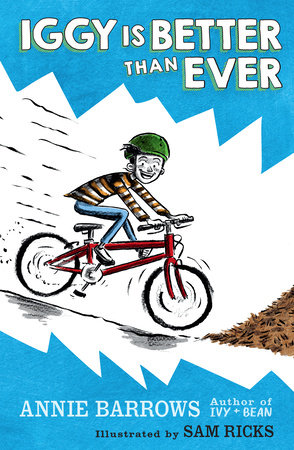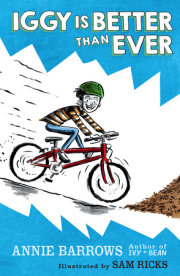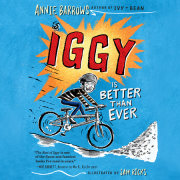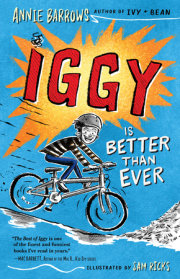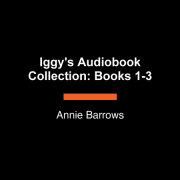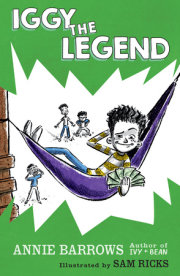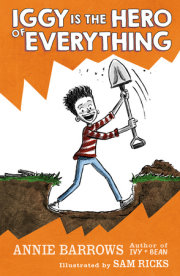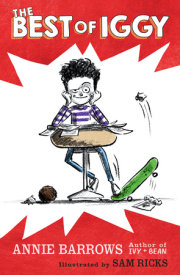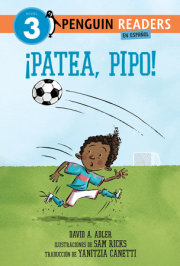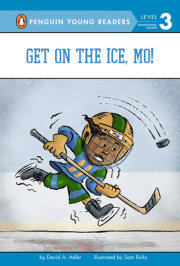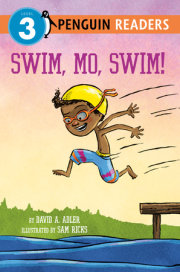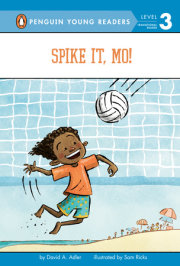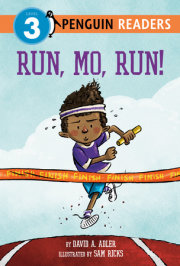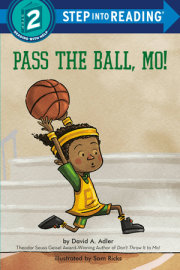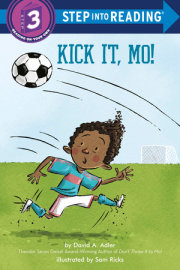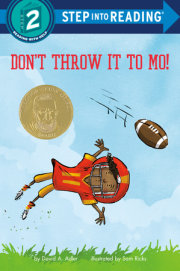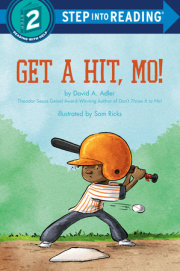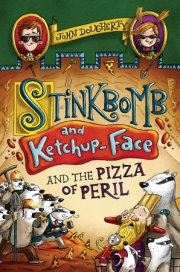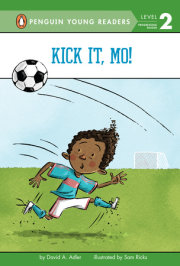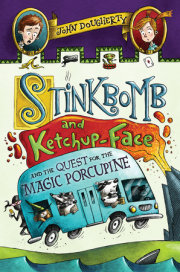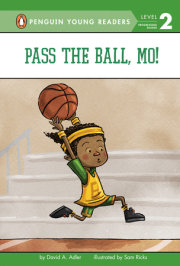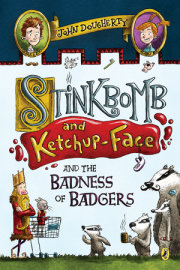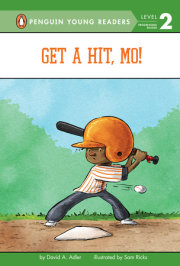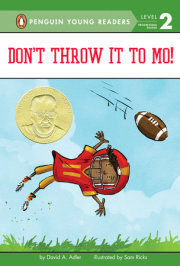Chapter 1
What This Book Isn’t About
You know those books where the main kid becomes a better person at the end? You should. You’ve read about a million of them.
For example, the main kid excludes another kid, and then the other kid wins some big thing like a race and becomes really popular, and then the main kid feels left out, and from this, he learns to be nice and not to exclude anyone ever again. The end.
Sometimes, the main kid is already okay at the beginning of the book, but he gets even better by the end. Say, the main kidkills at basketball, but by the end of the book, he learns that people who play the flute are just as good as people who kill at basketball. The end.
The main kid can also learn a rule, like Don’t Light Stuff on Fire. Or he can learn to keep on trying even when the going gets tough. It can be anything. The point is for the main kid to be better at the end than he was at the beginning.
Would you like to know why there are so many books about becoming a better person?
Because grown-ups like it when kids get better. They think it’s nice.
And they’re right. It is nice.
Unfortunately, in this book, nobody gets any better.
Sorry.
Nobody gets any worse, though!
So that’s good.
Iggy (that’s the main kid, also known as the hero, of this book) stays pretty much the same all the way through. He learns a few things, but they aren’t things that make him better. They are things about gardening supplies.
But mostly, Iggy gets in trouble. He does Thing 1, and then Thing 2 happens, and then, unfortunately, Thing 3 happens too. Does he learn from the bad things he does? Does he say to himself, Whew, that was really bad. I have learned my lesson. I’m going to stop doing that bad thing and become a better person!
No. He doesn’t.
Some people think that kids will learn their lesson if they experience a terrible consequence when they do something wrong. For example, if you’re not supposed to climb on the roof, but you do it anyway and then fall off and break your leg, this will teach you never to climb on the roof again. This is the whole idea behind punishments. Punishments were invented for the times when you climb on the roof, but you don’t end up with a broken leg. Grown-ups worry that you won’t learn your lesson if there’s no terrible consequence, so they make one up. That’s what a punishment is.
Does Iggy get punished for doing his bad things?
He sure does!
Do his punishments make him wish he hadn’t done them?
Not exactly.
To tell the truth, Iggy would do them all over again in a second.
Now, you are probably feeling kind of bad yourself because you’re reading a book about a kid who doesn’t get better. You’re probably saying to yourself, Gosh, I wish I were reading a book about a kid who plants flowers by the side of the road instead of this book about Iggy getting in a bunch of trouble! If that’s how you’re feeling, I have some good news for you. Even though Iggy doesn’t get any better during this book,you will. By reading about the bad things Iggy does, you will learn not to do those things, and that will make you a better person. Isn’t that great?
To help you become a better person, I am going to include special notes after each bad thing Iggy does to remind you that (a) boy, was that bad! and (b) don’t do that! I’ll even put the notes inbig type so you can show them to your grown-up and say, “Look! Reading this book is making me a better person!” The big type will also make it easy for you to skip those parts if you don’t want to read them.
But enough about you! Let’s get to the bad things Iggy does. Like most bad things, it began on a . . .
Chapter 2
Monday
Here’s Iggy on Monday morning. Yup, that’s him. That’s his bowl of cereal. That’s his dad. That’s his big sister, Maribel. His little sister is still asleep.
Why is his head on the table?
Don’t you ever put your head on the table?
No?
Well, aren’t you polite.
Iggy looks like he’s asleep, but he’s not. He’s thinking. He’s thinking about how much he doesn’t want to go to school.
“Eat your breakfast, Ig,” says his dad.
“I don’t want to go to school,” Iggy says. Actually, he yells it.
But does anyone pay attention? No.
Maribel says, “I need a new backpack.”
His mom, who isn’t in this picture because she’s in the next room looking at her computer, says something about how terrible the traffic is.
Then his dad says something else about how terrible the traffic is.
(Have you ever noticed how much time grown-ups spend talking about traffic?)
Iggy moans a little.
Does anyone feel sorry for him? No.
“We all have problems, Ig. Stop moaning and eat your breakfast,” says his dad.
Guess what! You can eat breakfast and moan at the same time!
“Stop that. You like school,” says Iggy’s dad. “Remember last week you said Ms. Schulberger was your favorite teacher ever.”
This is totally unfair. Ms. Schulberger is Iggy’s favorite teacher ever, but liking your teacher isn’t the same as liking school. He would probably like Ms. Schulberger even more if he only saw her once a month. Plus, he’s only had four other teachers, so how can he know for sure she’s his favorite? Maybe next year, in fifth grade, he’ll have a teacher he likes better than Ms. Schulberger. He says this.
“Ha,” says Maribel. She’s eleven, so she’s in middle school, but she used to go to Iggy’s school. “You’ll have either Ms. Keets or Miss Hackerman, and you better hope you get Miss Hackerman, because Ms. Keets will kill you.”
Iggy frowns. Why would she kill him?
Maribel leans over her cereal and whispers, “In my year, there was this kid who fell out of his chair by mistake, and Ms. Keets cut his hat.”
“Whaddaya mean, cut his hat?” whispers Iggy.
“In the paper cutter,” says Maribel. “He fell out of his chair by mistake. So think what Ms. Keets would do to you.”
Iggy thinks. He thinks about all the times he’s fallen out of his chair on purpose. Sometimes he yells “Whooo!” when he does it. Sometimes he pretends to trip when he’s going to the whiteboard. Sometimes—hardly ever—he slides under the table and ties other kids’ shoelaces together so they fall over when they stand up.
Ms. Keets probably would kill him.
“What about Miss Hackerman?” Hackerman! It sounds like she would kill him too.
Maribel shrugs. “Miss Hackerman’s nice. She wouldn’t kill you, because she likes everyone. But she’s old. She could be gone by next year. She was sick for something like a month when I had her. And guess who our substitute was.”
“Who?”
“Mrs. Wander.” Maribel grins at Iggy and makes a chopping motion across her throat. “Ha-ack!” she chokes.
Is Maribel choking on her cereal? No. She isn’t. What is she doing, then? And why?
Let me explain . . .
Chapter 3
A Short Chapter about a Short Person
Mrs. Wander is the principal at Iggy’s school. She is very short. She’s so short that most fifth graders and even some fourth graders are taller than she is. There’s nothing wrong with being short. Plenty of people are short and funny. Plenty of people are short and friendly. But Mrs. Wander is not these things.
Mrs. Wander is short and scary.
When kids see Mrs. Wander coming, they stand completely still, hoping her eyes will slide over them. Mrs. Wander doesn’t like kids who move. She especially doesn’t like kids who run. Running, she says, is not safe. Mrs. Wander is crazy about safety. She loves it. In Iggy’s opinion, it isn’t very safe to be so scary that you almost make kids pass out when they see you. But nobody’s asked Iggy’s opinion.
Here’s another thing about Mrs. Wander: She doesn’t like Iggy very much.
Actually, she doesn’t seem to like him at all.
They have spent a lot of time together, especially the year Iggy was in second grade. That year, he was sent to her office so many times, he had his own chair. Mrs. Wander even put a sign with his name on it on the chair. Iggy thought that was mean.
Sometimes people like you more when they get to know you. Not Mrs. Wander. The more she got to know Iggy, the less she liked him. When Mrs. Wander saw Iggy, her eyeballs would bulge with fury, even if he was standing completely still (which, to be honest, he usually wasn’t).
So what would happen if Mrs. Wander were his teacher?
Iggy would have to run away to Ketchum, Idaho.
Copyright © 2020 by Annie Barrows. All rights reserved. No part of this excerpt may be reproduced or reprinted without permission in writing from the publisher.

